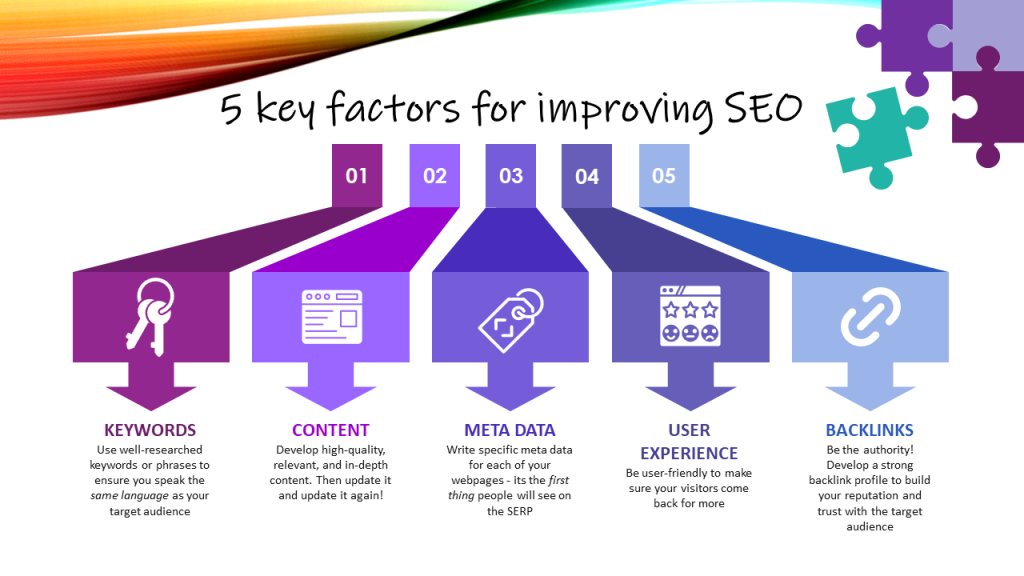In this digital age, we all turn to search engines such as Google to answer our questions, and healthcare professionals (HCPs) and patients are no different. Imagine this – you have developed a great website full of valuable resources to help connect, inform, and educate HCPs and patients, but in the last month you only had 10 visitors to the site – what can you do? Enter SEO!
SEO, or search engine optimisation, refers to the method of improving digital content to ensure webpages rank well on search engines. You may have heard the term SEO?! Many companies claim they can get you to the ‘first page’ of Google or transform your traffic and conversions. But in healthcare, there are so many more regulations and restrictions, and therefore, it can be hard to know where to begin. In fact, healthcare and pharmaceutical companies have the least engagement with SEO compared to any other industry! So, where do you begin?
SEO is one of the most crucial marketing strategies for any business, including pharma companies. In this blog, we look at the (not so secret) love language between search engines and SEO, and the key elements (or you might say, chapters) in this ever-lasting love story.
How do search engines work?
Firstly, to talk about SEO we must understand (in a very basic way) how search engines work. Search engines, such as Google, Yahoo, and Bing! use crawlers (also known as spiders, bots and robots) to visit webpages and digest their content, study their structure, and check the links connecting one page to another. The crawlers store all this data in an index – an extensive library containing all the data about the crawled webpages. Every time a spider crawls a page, the index is updated. The frequency at which this is done is determined by a rather complicated algorithmic process – so we won’t go into the details. Importantly, indexing isn’t a guarantee of anything. In fact, the quality of content is also a key determining factor for the inclusion of a webpage in the world’s largest library.
SERP! SERP!
With this basic understanding of how search engines have built their ever-growing library of webpages, the next question is who or what determines the list of results, or SERP (search engine results page), you see when you press enter on your search?
When a search is initiated, search engines (rather quickly) look through their index for the most relevant content. Then they order or ‘rank’ all the results in an attempt to provide the most relevant sources of information to the user first. Search engines determine ‘relevancy’ based on several factors including, the quality of content, authority of the domain, and previous user experience, although the full list of factors is unknown. Notably, there are two types of searches, organic (unpaid or free rankings in the SERP) and paid (paid rankings in the SERP).
You will be relieved to know that rankings are not fixed, and therefore, with appropriate SEO, webpages can move up the organic search rankings. With poor SEO, webpages can (and most likely will) go in the other direction (down).
SEO to satisfy both machine and user
SEO is all about speaking the secret love language of search engines, mostly Google, with approximately 91.9% of search traffic going through Google (that’s over 8.5 billion searches per day!). Search engine optimization aims to ensure search engines recognise a website as the leading source of information for that specific search query. This makes the visitor’s experience better. They’ve solved their query. And when those visitors spend more time on that website, moving through more pages, this tells Google that the website is worth visiting – circling back to improved rankings.
However, sadly, as in life, there are no shortcuts in SEO. Thus, improvements in ranking and visibility, should be seen as a long-term strategy, balancing quick technological wins, with ongoing honing and optimisation.
5 key factors for improving SEO

1. Keywords
It is important that the webpage “speaks the same language” as its potential visitors. Therefore, keywords (or key phrases) must be well-researched and used wisely, especially in headings, to help connect the right searchers to the webpage. These terms will be a key driver of ranking performance.
2. Content
Content is king! High-quality and in-depth content that answers a user’s query is essential and is one of the most important factors impacting SEO. Importantly, for a webpage to appear consistently in the SERP and drive traffic to a website, the content needs to be continuously updated and optimised – a writer’s job is never done!
3. Metadata
This term may sound a little scary but metadata is actually pretty simple, often easy to amend, and importantly, it is the first thing people will see in the search results. So, it’s both an SEO and marketing opportunity! Metadata describes the content of a specific webpage (it’s like whispering sweet nothings in Google’s metaphorical ears). There are 3 metadata categories including the page title, description, and images.
4. User experience
There are a number of factors that can influence the user experience of a webpage, including mobile responsiveness, loading speeds, site structure and navigation, as well as appropriate and optimised page titles and headings. Oh and don’t forget there’s the content too. Your users have to be happy with what they find from every aspect of your site if they’re going to come back for more!
5. Backlinks
As the name suggests, a backlink is when an external website links to your website. Backlinks are an example of off-page SEO, a tactic applied outside a website to improve rankings. Authoritative backlinks help build reputation and trust in a website, and therefore, are a critical ranking factor on search engines. However, tread with caution – they must be acquired in an appropriate way. If not, link buying tactics can result in penalties, and even the removal of a website from the search results.
Importance of SEO
In an ever-changing digital landscape, SEO remains one of the most viable and cost-effective tools available to help drive consistent and organic traffic to websites. For healthcare and pharma companies there are several benefits to implementing this invaluable and under-utilised tool beyond just engagement and traffic, including brand awareness, building relationships with your target market, and positioning yourself as an authoritative and trustworthy expert in the medical field for both HCPs and the patients, alike.
SEO in healthcare and pharma
With our dependence on search engines for information, it is more important than ever for healthcare and pharma companies to have a strong digital presence. SEO is a powerful, yet under-utilised, tool in the pharma and healthcare industries. It is one of the most cost-effective ways to generate organic traffic and drive sales. However, SEO is about more than just driving sales, it is about building awareness, trust, and reputation, as well as being a reliable source of valuable insights and up-to-date information in the medical field.
Looking to implement SEO into your website?
The search is over. Our SEO experts can help you on your way to the top. Get in contact today.
References
- What is SEO? A Beginner’s Guide to Search Engine Optimization. WIX Blog. Available at: https://www.wix.com/blog/2020/07/what-is-seo. Accessed April 2023.
- SEO 101: The Beginner’s Guide to SEO. Moz. Available at: https://moz.com/beginners-guide-to-seo. Accessed April 2023.
- Lahey, C. 2022. SEO Basics: The Ultimate Guide to SEO for Beginners. SEMrush. Available at: https://www.semrush.com/blog/seo-basics/. Accessed April 2023.
- Mohsin, M. 2023. 10 Google Search Statistics You Need To Know In 2023. Oberlo. Available at: https://www.oberlo.com/blog/google-search-statistics. Accessed April 2023.
